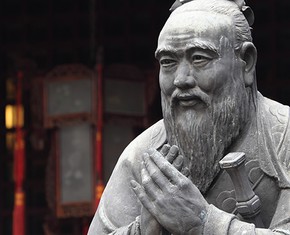The views expressed in our content reflect individual perspectives and do not represent the authoritative views of the Baha'i Faith.
What happens, in the democratic Baha’i system of administration, when a Baha’i gets elected to serve?
Baha’is consider membership on Baha’i administrative institutions to be exactly that—a position of service. Unlike other institutions, getting elected is not seen as a sinecure or a badge of honor or position. Instead, one’s entire orientation should be to aid others and to promote spiritual principles. This requires an attitude of humility before God and deep respect for those whom the institutions serve. Shoghi Effendi explained:
The duties of those whom the friends have freely and conscientiously elected as their representatives are no less vital and binding than the obligations of those who have chosen them. Their function is not to dictate, but to consult, and consult not only among themselves, but as much as possible with the friends whom they represent …. They should never be led to suppose that they are the central ornaments of the body of the Cause, intrinsically superior to others in capacity or merit, and sole promoters of its teachings and principles. They should approach their task with extreme humility, and endeavor, by their open-mindedness, their high sense of justice and duty, their candor, their modesty, their entire devotion to the welfare and interests of the friends, the Cause, and humanity, to win, not only the confidence and the genuine support and respect of those whom they serve, but also their esteem and real affection. They must, at all times, avoid the spirit of exclusiveness, the atmosphere of secrecy, free themselves from a domineering attitude, and banish all forms of prejudice and passion from their deliberations. – Shoghi Effendi, Baha’i Administration, p. 64.
Let us also bear in mind that the keynote of the Cause of God is not dictatorial authority but humble fellowship, not arbitrary power, but the spirit of frank and loving consultation. Nothing short of the spirit of a true Baha’i can hope to reconcile the principles of mercy and justice, of freedom and submission, of the sanctity of the right of the individual and of self-surrender, of vigilance, discretion and prudence on the one hand, and fellowship, candor, and courage on the other. – Ibid., pp. 63-64.
Elections of Baha’i administrative institutions occur by secret ballot in an atmosphere of prayer and reverence. Self-promotion, open discussion of possible members, canvassing, nominations, and campaigning of any kind are strictly forbidden. Each believer is completely free, after prayerful and private reflection, to vote for whomever he or she pleases, without interference. There is no notion of incumbency or tenure, meaning that serving members enjoy no special consideration in the voting process.
Shoghi Effendi, referring to the election of a National Spiritual Assembly, elucidates the qualifications for membership that believers should keep in mind as they cast their ballots:
They should consider without the least trace of passion and prejudice, and irrespective of any material consideration, the names of only those who can best combine the necessary qualities of unquestioned loyalty, of selfless devotion, of a well-trained mind, of recognized ability and mature experience. – Ibid., p. 88.
Serving on a Spiritual Assembly
The Spiritual Assemblies are divine institutions, ordained by Baha’u’llah to ensure the betterment of the world. According to Shoghi Effendi:
They must endeavor to promote amity and concord amongst the friends, efface every lingering trace of distrust, coolness and estrangement from every heart, and secure in its stead an active and whole-hearted cooperation for the service of the Cause.
They must do their utmost to extend at all times the helping hand to the poor, the sick, the disabled, the orphan, the widow, irrespective of color, caste and creed.
They must promote by every means in their power the material as well as the spiritual enlightenment of youth, the means for the education of children, institute, whenever possible, Baha’i educational institutions, organize and supervise their work and provide the best means for their progress and development ….
They must undertake the arrangement of the regular meetings of the friends, the feasts and the anniversaries, as well as the special gatherings designed to serve and promote the social, intellectual and spiritual interests of their fellow-men ….
These rank among the most outstanding obligations of the members of every Spiritual Assembly. – Shoghi Effendi, Baha’i Administration, pp. 38, 39.
As important as Baha’i administrative institutions are, they are only one aspect of Baha’u’llah’s vision for community life. Two other features of Baha’i community life deserve mention. We have seen that Baha’u’llah exhorted his followers to gather together for prayer and reading of the sacred scriptures. He also instituted a special gathering called the Feast, to be held regularly in each local community. This is a time for worship and fellowship, and provides an important opportunity for members of the community to consult with each other about the affairs of the Faith. All Baha’is—children, youth, and adults—are called upon to attend the Feast once every nineteen days:
This feast is held to foster comradeship and love, to call God to mind and supplicate Him with contrite hearts, and to encourage benevolent pursuits.
That is, the friends should there dwell upon God and glorify Him, read the prayers and holy verses, and treat one another with the utmost affection and love. – Abdu’l-Baha, Selections from the Writings of Abdu’l-Baha, p. 91.
In The Most Holy Book Baha’u’llah also calls for the establishment of houses of worship “throughout the lands.” Baha’i Houses of Worship are places for prayer and meditation, open to all people. Today there are nine of them—one each in North America, Central America, South America, Africa, Australia, Europe, India, Cambodia and Western Samoa. Each is built on an ambitious scale, with nine sides, a dome, and decorative gardens. In the future such places will symbolize the spirit and genius of the new world civilization. They will exist in every city and will also be associated with humanitarian agencies such as schools, hospitals, and universities, thereby linking the worship of God and service to humanity in tangible form. Abdu’l-Baha characterizes the Baha’i House of Worship and its associated agencies as “one of the most vital institutions in the world.” – Ibid., p. 99.
















Comments
Sign in or create an account
Continue with Googleor